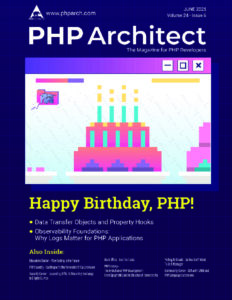Confessions of a Hiring Manager: Get my attention, Get a Job
Clutter is the disease of American writing. We are a society strangling in unnecessary words, circular constructions, pompous frills and meaningless jargon.
— William Zinsser “On Writing”
I am often asked to take a look at friends résumé to give pointers on how that can make it more effective. Invariably, my advice is the same, so I’ll share it here. When I was a manager and in charge of hiring, your résumé had to get my attention for me to even consider it. If you got my attention, you had a much better chance at getting the job. That’s the secret: get my attention, and get the job.
So what gets my attention? Well, first you have to put yourself inside my head. As the Director of IT, hiring a new team member might be important to me, but it’s only one of the twenty things I have to do today. Thus, no matter how important it is, I’ve got limited bandwidth to dedicate to it.
When I posted that ad that you responded to, chances are you weren’t the only one who saw it. I will have 30 résumés sitting in my inbox when I get in; all of them want a shot at the job—therefore, what little bandwidth I have for this task just got split 30 ways. Your window of opportunity just shrank to about 20 seconds, and that’s if I don’t get a phone call while it’s your turn.
Now that you understand what you are up against, how do you stand out? In a word, brevity. One page is best. Two pages may be ok if you
caught my attention on the first page. I rarely made it to the third page of a résumé though.
The most important page of your résumé is the first one—and the most important section of that page is the top half. Catch my attention with something there and you may go in my green stack. If I have to go to the second half of the page to find a reason to talk to you, you go in the yellow stack. If it’s not on page 1, chances are good that you are going in the shiny metal can I call the red stack.
Ok, so the top half of the first page is important; what goes there? Well, I’ve already told you what I was looking for in the job ad I posted. Most of the time I used the industry jargon that I want you to give back to me. It’s your turn now to tell me why you’ve got what I’m looking for.
I recommend a one to two sentence paragraph telling me what you want to do, why you want to do it for me. (Don’t be afraid to be a little gonzo, I don’t mind “Code Ninja” as long as you can back it up in the interview). Next, give me five to seven bullet points that are the really important things you want me to know. This is stuff that is buried in the rest of your résumé. Keep it short and make sure they matche the skills I asked for in the ad.
Good Example for a PHP programmer:
- Wrote an article for php|architect on Zend Framework
Bad Example for a PHP programmer:
- Wrote seven articles for FoxPro Advisor
If you have any room left on the front page, give me a quick list of your work history. One line for each job you have held, the company and dates.
Now, once you have it all assembled, don’t start shot gunning it out to everyone with the letters PHP on their job ad. The rest of your résumé is static, complete, detailed and verbose; it does not need to change unless something changes in your life, like landing this new job. However, your first page should be assembled for each company you send it to.
Have several versions of your “objective” statement and tailor it to the company you are applying to. This company should get a much different version of your objective statement than say, a Law Office or Hospital.
Finally, follow up in a day or so. Chances are that you are in the green or even yellow pile and I just haven’t made it to you. If you are the only one that follows up, guess who gets the interview? Don’t be obnoxious, just a friendly, “What else can I tell you to sway your opinion?” If I don’t respond after a couple of email pings, I’m sorry, you weren’t what I was looking for but I was too chicken to tell you why. Don’t get discouraged, just keep looking.
Leave a comment
Use the form below to leave a comment:




Responses and Pingbacks
February 11th, 2010 at 5:47 pm
This is quite a good article and I support its views. From my own experience (I’m now retired but had 15 years experience in applications development, many of those at senior management roles) I found that during job interviews you generally make up your mind about the suitability of the interviewee for the position within about the first thirty seconds to a minute of the interview. The rest of the interview is spent confirming that view in your own mind. The importance of this is that interviewees MUST make an early positive impact – get the interview panel’s attention early and then build on that interest.
Regards,
Peter
June 1st, 2015 at 2:36 am
I agree with this post, getting hired is mostly about first impressions. It starts with your resume and then the interview. For the interview if you fit the company culture or team it is normally the most desired attribute, since it is likely any other candidates are more than enough skilled. Making a good first impression by how you introduce yourself and dress can set you apart.